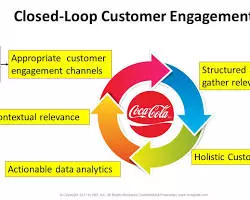Ignite Customer Engagement with CRM: The Key to Building Lasting Relationships in 2024

Customer Engagement with CRM Software
In the age of digital transformation, fostering meaningful customer engagement is paramount for business success. Customer engagement encompasses all interactions a customer has with your brand, from initial awareness to post-purchase experiences. Engaged customers are more likely to become loyal advocates, driving repeat business, referrals, and positive word-of-mouth. Customer Relationship Management (CRM) systems provide the tools and insights necessary to track, analyze, and enhance customer engagement, building lasting relationships that fuel growth.
The Power of Customer Engagement
Customer engagement is not merely a transactional concept; it’s about fostering an emotional connection with your brand. Engaged customers exhibit the following characteristics:
- High Satisfaction: They are happy with your products or services and the overall experience they receive.
- Repeat Business: They are more likely to return for additional purchases or upgrades.
- Brand Advocacy: They actively recommend your brand to friends, family, and colleagues.
- Positive Sentiment: They express positive opinions about your brand on social media, review sites, and other online platforms.
- Loyalty: They remain loyal to your brand even when faced with competitive offers.
How CRM Drives Customer Engagement
CRM systems provide a comprehensive platform for managing customer interactions, tracking engagement levels, and delivering personalized experiences. Key CRM features for customer engagement include:
- Omnichannel Communication: Engage with customers across multiple channels, including email, social media, live chat, and phone, creating a seamless experience.
- Personalized Messaging: Tailor your communication to individual customers based on their preferences, purchase history, and engagement patterns.
- Sentiment Analysis: Analyze customer feedback and social media mentions to gauge sentiment and identify potential issues or opportunities.
- Customer Journey Mapping: Visualize the customer journey to understand how customers interact with your brand at different touchpoints and identify areas for improvement.
- Loyalty Programs: Implement loyalty programs to reward repeat customers and incentivize continued engagement.
- Gamification: Incorporate gamification elements into your customer interactions, such as points, badges, and leaderboards, to make the experience more enjoyable and engaging.
Best Practices for Customer Engagement with CRM
To maximize customer engagement with CRM, consider these best practices:
- Collect and Analyze Data: Gather data on customer behavior, preferences, and interactions through various channels. Analyze this data to gain insights into customer needs and expectations.
- Personalize Experiences: Use CRM data to deliver personalized messages, offers, and recommendations to customers, showing them you understand their individual needs.
- Be Proactive: Don’t wait for customers to reach out to you. Proactively engage with them through targeted campaigns, personalized messages, and relevant content.
- Build Community: Foster a sense of community among your customers through online forums, social media groups, and events, creating a space for them to connect with each other and your brand.
- Measure and Optimize: Track key engagement metrics, such as website visits, email open rates, social media engagement, and customer satisfaction scores. Use this data to optimize your engagement strategies and improve results.
Conclusion
Customer engagement is a critical factor for business success in 2024. By leveraging the power of CRM, businesses can gain a deeper understanding of their customers, deliver personalized experiences, and build lasting relationships that drive loyalty and advocacy. Invest in a robust CRM solution and implement best practices for customer engagement to turn your customers into passionate brand ambassadors.

Fundamentals of CRM with Dynamics 365 and Power Platform

Marketing Automation For Dummies

Successful Direct Marketing Methods: Interactive, Database, and Customer-based Marketing for Digital Age (BUSINESS BOOKS)

CRM & FFHH: analysis of real accidents

Connected CRM: Implementing a Data–Driven, Customer–Centric Business Strategy

Special Edition Using Microsoft CRM
Related Guides: See all
- AI-Powered CRM: Supercharging Customer Relationships with Intelligent Automation and Predictive Insights in 2024
- Omnichannel Engagement with CRM: Crafting Seamless Customer Journeys in 2024
- Personalization Powerhouse: How CRM Drives Customer-Centric Experiences in 2024
- Customer Segmentation Mastery with CRM: Unlock Personalized Marketing and Sales Strategies in 2024
- Mastering the Customer Journey with CRM: Elevate Experiences and Boost Loyalty in 2024
- Social CRM: Building Stronger Customer Relationships Through Social Media in 2024
- Cloud CRM: Revolutionizing Business Agility and Scalability in 2024
- Mobile CRM: Empowering Sales and Service Teams on the Go in 2024
- CRM Integration and API: Unifying Your Business Ecosystem for Seamless Operations in 2024
- Data-Driven Decisions with CRM: Harness the Power of Reporting and Dashboards in 2024